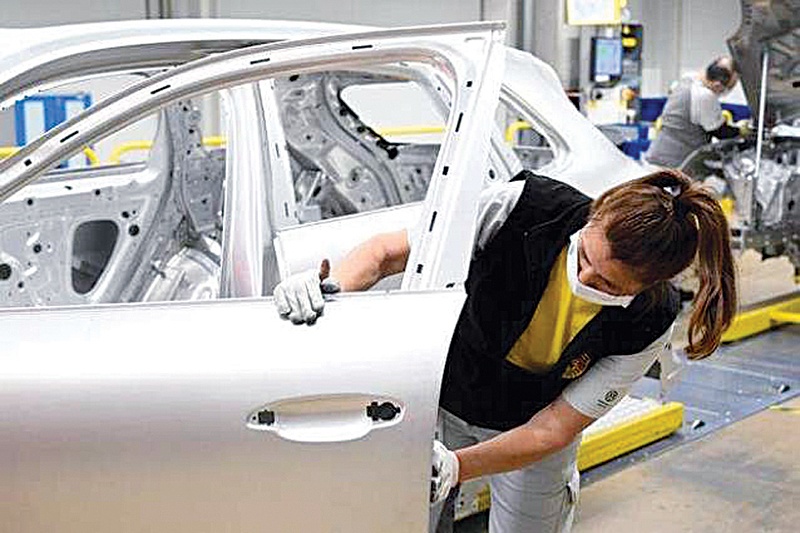 Germany's key car market plunged in 2020 to its lowest levels since reunification with output and sales down dramatically due to the coronavirus pandemic
Germany's key car market plunged in 2020 to its lowest levels since reunification with output and sales down dramatically due to the coronavirus pandemic
FRANKFURT: Germany's key car market plunged in 2020 to its lowest levels since reunification, data showed Saturday, with output and sales down dramatically due to the coronavirus pandemic. A total of 2.9 million cars were registered in Europe's largest economy last year, down 19 percent, with production of 3.5 million vehicles reaching the lowest volume in 45 years, according to the VDA auto federation. Efforts to halt the spread of the coronavirus shuttered factories early in the year and the latest lockdown, set to last until the end of January, have closed brick-and-mortar dealerships.
"We expect the German passenger car market to recover in 2021," VDA president Hildegard Mueller said in a statement. "Nevertheless, the very strong pre-corona level isn't expected to be reached for the time being." The slump makes for numbers not seen since before the country's reunification. The last time fewer than three million cars were registered was 1989. The 19 percent fall in 2020 was only eclipsed in 2010, after a year in which sales had been inflated by a scrappage premium. But in a glimmer of hope, in December 2020, just over 310,000 cars were registered in Germany, an increase of 10 percent on the same month of 2019.
Germany's government introduced a temporary VAT reduction in July, which "had an effect" ahead of its expiry at the end of the year, the VDA said. Exports of German-made cars were down 24 percent at 2.6 million vehicles. The news come as German manufacturers struggle to adapt to European Union emissions targets and make the costly switch to electric vehicles.
Mueller argued that the slump in sales was bad for the environment, as without renewing the car fleet, "older cars stay longer on the streets". The market share of electric cars continues to rise, tripling in the year to reach 6.7 percent of new registrations. Including hybrids, e-vehicles accounted for 13.5 percent of new registrations at 395,000, a share that rose more than a fifth in the last quarter of the year. - AFP
.jpg)
